Quantum computing has been gathering steam lately and it’s here to stay One of the most popular topics of computer science after AI and machine le. As it’s a new technology and still rising in popularity, there are few resources available to learn online as well as offline. There is a limited number of Quantum computing books available in the market. If you are new to this field of computing and want to explore and learn more about quantum computing, here are the best-handpicked books on this subject. The quantum computing books listed here are a list of both non-coder general introductions and a more sophisticated hands-on coding way to quantum computing.
Quantum Computing Books List
1. Quantum Computing For Everyone(MIT Press)

The author of this book, Chris Bernhardt gives a basic intro to quantum computing technology that is convenient to anyone who is at ease with high school Maths. Chris explains qubits, entanglement, quantum teleportation, Bell’s inequality, Simon’s algorithm, quantum algorithms, and various quantum-related topics as efficiently as possible keeping in mind the general reader. He tries to simplify the mathematical process by giving in this book as he himself is a mathematician. The book is split into 9 chapters and the first 6 are very important to read. Going towards the end of this book, readers understand that quantum computing and classical computing aren’t two different disciplines and also the fact that quantum computing is the basic form of computing. The fundamental unit of computation is the qubit, not the bit.
2. Dancing with Qubits: How quantum computing works and How it can change the world
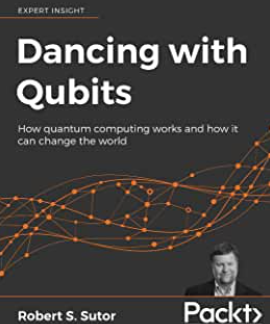
In this wonderful book, the author Robert Sutor Explores the practicalities and principles of quantum computing. You will be able to Discover the exact functioning of quantum computers and dive into the mathematics behind it. You will easily be able to solve complex problems including the innermost workings of quantum technology to immediately process complex cloud data and efficiently solve the problems. Through this book, readers can deeply explore the detailed working of quantum computing. This textbook is best suited for people with a good understanding of mathematics, physics, and computer science. Dancing with Qubits begins with details about the difference between quantum and classical computing then describes multiple industry application cases where it can be majorly impactful. Then it goes towards a detailed illustration of classical computing and the mathematical support essential to know concepts such as superposition, entanglement, and interference. Next to know about are algorithms and circuits, including basic and advanced levels. Next, it moves on to give scrutiny of the physics and engineering background of the development of quantum computing hardware. At last, the textbook glances through the future tries to give a complete picture o the further developments that will affect you.
3. Quantum Computing: An Applied Approach
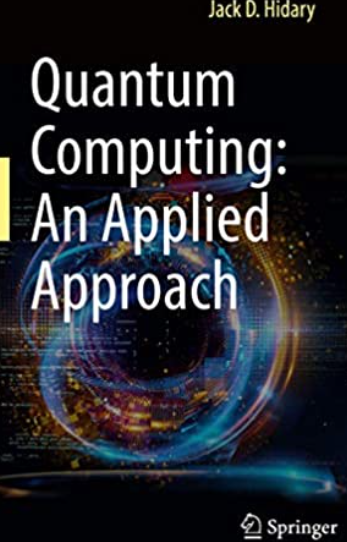
Authored by Jack Hidary, This textbook combines the foundations of quantum computing with a hands-on coding perspective to this emerging field of computer science. This work is best suited for academic coursework as well as corporate technical training. This volume consists of three books within a single cover: Part I profiles the compulsory basics of quantum computing and quantum circuits. Part II introduces the principle of quantum computing algorithms and gives code on a range of quantum computing techniques in present use. Part III details the mathematical toolkit essential to learn deeply about quantum computing. Further resources include a table of operators and circuit elements with an assistant GitHub website consisting of major updates and code.
4. Programming Quantum Computers: Essential Algorithms and Code Samples
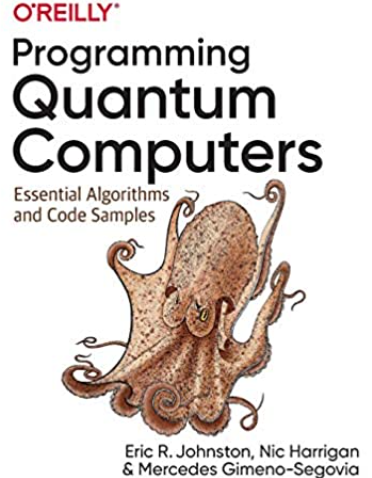
Quantum computers are assured to start a massive new computing revolution. Every techie should join in this revolution here. For people who are into software engineering, computer-based graphics, data science, or simply an engrossed computerphile, this textbook gives a hands-on computer programmer’s guide to understanding quantum computing. Rather than learning the in-depth concepts of mathematics and theory, you’ll work straightaway with samples and examples that demonstrate this technology’s special capabilities. Quantum specialists Eric Johnston, Mercedes Gimeno-Segovia, and Nic Harrigan show you the exact process to develop the skills, tools, and clairvoyance required to write quantum programs effectively. You’ll understand in detail what quantum computers are capable of and how well they can perform also, learn the process to identify the types of issues they can solve.
5. Quantum Computation and Quantum Information
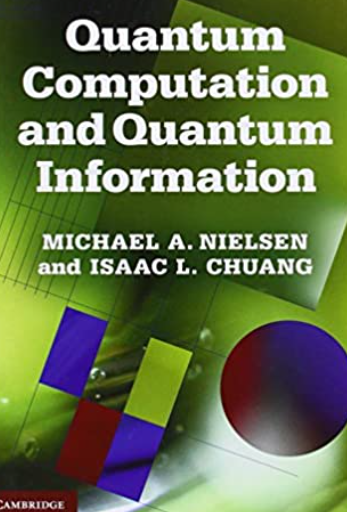
This book is considered the gold standard of quantum computing. One of the highly cited books in the subject of physics, Quantum Computation, and Quantum Information still remains the best textbook in this exciting subject of science. This book in its 10th-anniversary edition includes an introduction from the authors Michael Nielsen and Isaac Chuang. This detailed textbook represents remarkable effects such as quick quantum algorithms, quantum cryptography, quantum teleportation, and quantum error rectification. Quantum mechanics including science are enormously introduced before going ahead to represent what a quantum computer is, its utilization to solve critical problems faster than any ‘classical’ computers, and its real-world performance. Book concludes with an in-depth consideration of quantum information. Complete with a wealth of figures and exercises, this famous textbook is perfect for courses and topics on the subject and will attract the interest of entry-level graduate students and researchers as well as experts in physics, mathematics, computer science, and electrical engineering.
6. Quantum Computing Since Democritus
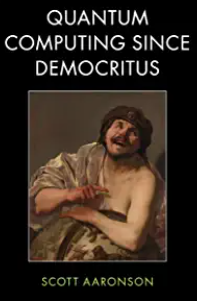
One of the most efficient and popular quantum books is authored by theorist Scott Aaronson, this textbook takes all the users on a journey to many of the deepest parts of computer science, maths, physics, and computer hardware. Full of insights, strategies arguments, and philosophical perspectives, the book covers a wide array of topics. This inclusive book, Beginning in antiquity with Democritus, displays the progress through logical reasons and set theory, computability as well as complexity theory, cryptography, quantum computing, the information and crucial data content of quantum states including particles, and the interpretation of quantum mechanics.
7. Learn Quantum Computing with Python and IBM Quantum Experience
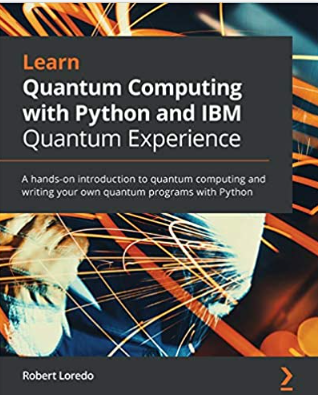
Authored by Robert Loredo who has more than two decades of experience software architecture and engineering. He is also well-known for being the Global Technical Ambassador – IBM Quantum. The reader is gradually introduced to the IBM Q Experience, the fundamentals of quantum computing, and the limitations posed by the current machines through a systematic approach. The technical introduction demonstrates to the user the process of utilizing the IBM system through either their website’s graphical user interface or by executing Python code on their personal computer. Additionally, the text supplies examples of concise exercises to attempt and inspires fresh concepts to explore. The book presents an overview and introduction of the IBM Q Experience Qiskit software modules including Terra, Aer, Ignis, and Aqua, as well as the various available backends for computation. Additionally, the final two chapters of the book are devoted to comprehensive discussions on quantum algorithms.

Thanks, I’ve just been searching for information approximately this subject for ages and yours is the greatest I’ve come upon till now. However, what concerning the conclusion? Are you positive concerning the supply?
certainly like your website but you need to check the spelling on quite a few of your posts. Many of them are rife with spelling issues and I find it very bothersome, to tell the truth nevertheless I抣l certainly come back again.
all tһe time I used to read smaller content which also clears their motive,
and that is аlso happening with this paragraph wһiсh I
am reading now.
I do consider all of the ideas you have presented in your post. They’re very convincing and can certainly work. Nonetheless, the posts are very quick for starters. May you please lengthen them a little from next time? Thanks for the post.
Hello there! Quick question that’s entirely off-topic. Do you know how to make your site mobile-friendly? My site looks weird when browsing from my iphone4. I’m trying to find a template or plugin that might be able to resolve this issue. If you have any suggestions, please share. Thank you!
I’ve read part of the first one “Q Computing for Everyone” – and it is hardly that. I would say it is written at the level of college junior mathematics majors or physics graduate students. Also the Aaronson book “Since Democritus” is very very tough going, and probably not for anyone who is not already an expert in the field